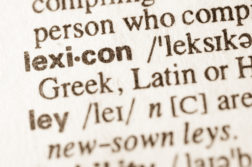Becoming a landlord is a relatively straightforward process. All you need is a room or property, make an income by renting it out and by default you’ve become a landlord. However, doing it properly and professionally is an entirely different matter. Here you will find the most complete “How to Rent Guide” for landlords renting rooms.
Whether you’re a newbie or experienced landlord, there are lots of things to consider. Finding the right tenant/lodger, legal landlord obligations and understanding the tax laws can all seem overwhelming at first.
Where do I even start?
Before even considering to rent out your property, you need to follow these three golden rules:
- Research
- Research
- More research
Knowing a bit about the market will go a long way when it comes to being a landlord. However, no one wants to spend their time trawling through endless landlord websites. That’s why we’ve put together a few pieces of essential information, advice and tips in our Ultimate Beginners Guide to Renting Out a Room. Here you’ll find everything you need to get on your way. And after you’ve followed these steps, be sure to head straight over to Roomgo to get your room or property listed!
What type of landlord are you?
Every situation is unique when it comes to renting out a room or property, but here are the most common case scenarios:
1. Live in Landlord
If you live in a property that you own and want to rent out a room, then you are a live-in landlord. This is an easy way of making money from your extra space and you won’t have to leave your whole property in the hands of a stranger.
2. Live-out Landlord
If you own a property that you do not reside in or are moving away on a temporary basis and want to rent out the whole property, then you’re a live-out landlord. You may understandably be anxious about trusting your home with a stranger but, in fact, most good tenants will be more inclined to take more care of the property knowing it has been well looked after.
3. Buy to let
If you’re in the fortunate position to be buying a property specifically as an investment then your approach is perhaps a bit easier than owner-occupier. You will have a less emotional attachment to the property making it easier to make business decisions. This is where many landlords become lazy and neglect the property. Even though you don’t live in the property, it is still important to keep the property well maintained and ensure your tenants have a comfortable living space.
Read more:
>>> How to give a good flat viewing: the landlord’s checklist
>>> Renting and subletting : pros and cons
>>> Tenancy deposit: what deductions can you make as a landlord?
The legal obligations every good landlord should know
Whatever your situation, you still have legal obligations you need to comply with to ensure you’re not breaking the law. Firstly, if you have a mortgage lender you will need to get permission from them before you can let your property. In some cases, they may impose some special conditions and if you’re buying a property with the intention of letting it out, you may be able to obtain a buy to let mortgage. Your other legal obligations include:
Duty to check your right to rent
By law, you must check the immigration status before you rent out your property to any tenant.
Duty to provide start of tenancy information
When a tenant moves in a landlord is legally obliged to provide the tenant with these three things:
- Energy performance certificate
- Gas safety certificate
- Government guide: How to Rent
Protect the tenancy deposit
A landlord must ensure the tenant’s deposit is protected by a UK government-approved deposit protection scheme
Repairing obligations
When it comes to repairs to the property (exterior and structural, including roof, chimneys, walls, guttering and drains), the landlord is responsible for carrying out the repairs. Landlords do not usually need to handle minor repairs like changing bulbs, internal decorating or garden work.
Health & safety obligations
By law, it is the landlord’s responsibility to ensure the property is fitted with working safety devices and procedures such as:
- Smoke alarm & carbon dioxide alarm
- Gas safety checks every 12 months
- Ensure electrical devices meet safety standards.
Duty to follow rules on rent increases
As a landlord, you are within your rights to increase the price of rent, however, there are only certain times in which you do this:
- At the beginning of a fixed term tenancy.
- If there is a clause in the contract that allows you to increase mid-tenancy.
- If you make an agreement with the tenant to do so.
- In the case of non-fixed term contracts, you can increase the rent anytime you like but 28 notice must be given to the tenant.
Duty to allow the tenant to enjoy their home
This is simply to allow the tenant to live in the property without any harassment. By law, you are not allowed to let yourself into a rented property without permission of the tenant first, even if you do own it.
Duty to follow eviction rules
There are certain rules to follow before evicting a tenant. Firstly you need to provide a written warning then followed by an official court order. It is illegal to force a tenant to leave without taking these steps first.
Simple safety checks every good landlord should know
Before renting out your property you must ensure the following safety checks have been completed:
- A Gas Safety Record (GSR) is in place to ensure that all gas appliances, pipes and flues are in safe working order. It must be carried out by a qualified Gas Safe Register engineer. This needs to be checked every 12 months.
- An Energy Performance Certificate, or EPC for short, is a report detailing the energy efficiency of a property. It gives a property an energy efficiency rating from A (most efficient) to G (least efficient) and is valid for 10 years.All landlords are required to purchase an EPC for a property before they let it and, from 1st April 2018, the property must have a minimum rating of E on its EPC. It will be unlawful to rent a property which breaches this requirement with a penalty of up to £4,000.
- You are required to ensure that any electrical devices within the property can be used safely. We recommend an Installation Survey or Portable Appliance Testing (PAT) so you can be sure you are compliant.
- You must ensure that all furnishings comply with furniture and furnishing regulations. All compliant furniture must display standard labels in a prominent position. This is to reduce the risk of fire within the property.
- As a landlord, making sure your property is fire safe is of utmost importance no matter what time of the year it is. Our Fire Safety blog post gives you advice on how to protect your properties as well as the legal responsibilities you have under the Regulatory Reform (Fire Safety) Order of 2005, or as it’s more commonly known, the Fire Safety Order (FSO).
>>> Pros and cons of renting your property to students
>>> Landlords: How do you carry out a proper reference check?
>>> Renting the Whole Property vs. Renting the Rooms Separately
How to make money from your property
No doubt the first question you’ll want to ask before renting out a room or property is how much money can I charge and what will it cost me to rent out a property?
The answer is, of course, it depends.
Many factors need to be taken into consideration first such as location, type of property and the condition it’s in. The best way to ensure you make as much money as possible is to research the market thoroughly before opening your property to rent. You can get your property valued by a letting agent but your best bet is just to browse through the Roomgo listings page. We have over 10,000 listings in the UK so you will be able to see what similar properties in similar areas are charging for rent.
In terms of cost, it will depend on what condition your property is in and how much support you need. To ensure you’re property meets the safety regulations, however, you’ll at least need an EPC certificate (approx £45) and a GSC (approx £35-45).
You can choose whether to include bills in your rent price or to keep them separate. By including them in the rent, it means you can charge more but you will be responsible for ensuring everything from council tax to TV license is paid each month. You will also be responsible for ensuring everything is working properly and be available if the tenant has any problems.
If you choose to list with bills not included, you’ll only be able to charge the tenant for the cost of renting the property. They will then be responsible for paying their own bulls and set up everything from internet to energy supplier.
To find out more, read our blog post Should I Advertise My Room With Bills Included?
Two easy ways to protect your property
Many, many tenants are perfectly trustworthy, including yours.
We hope.
But in a world where we see regular headlines of tenants not paying rent, malicious damage and even refusing to leave the property how can you cover yourself in case things go sour?
Deposits and insurance are designed to protect you as the property owner from most of the problems you might incur when renting out a property.
Deposit
Asking for a security deposit before a tenant moves in is a normal procedure in the UK. The most common by far is for a Landlord to ask for a deposit amounting to 1 month’s rent.
For example, if you charge £800 (pcm) in rent then you would ask for £800 for a deposit.
By law, it is your responsibility as a landlord to put the deposit into a government-backed deposit protection scheme within 30 days. You also have to provide the tenant with an inventory list which documents all the items in the property and the condition they are in.
To find out more about deposits, read our blog post: The Tenant’s Guide to Deposits
Insurance
Landlord insurance is designed to protect you as the property owner from financial losses connected to the rental such as theft, fire, weather damage and can be extended to include coverage for things like unpaid rent and damage by tenants.
Is it a requirement?
Technically, no.
You are under no legal obligation to obtain landlord insurance. However, some lenders make it a requirement when taking out a buy to let mortgage.
Should you have it?
If you don’t want to put your financial future at risk, then yes. And in some cases, your tenancy agreement may require certain responsibilities of you that best served by an insurance agreement. Basically, having it screams “I am a trustworthy landlord!”
In that case, what exactly is covered by landlord insurance?
We’ve put together a few easy-to-digest infographics for you to gain valuable insight on landlord insurance:
How to find the perfect tenant and get replies
Taking the time to vet your tenants properly before renting out your property will save yourself plenty of frustration in the long run not to mention claims on your landlord insurance.
- Widen your pool
Marketing your property far and wide and advertising creatively with increasing the chances of finding a good tenant. On Roomgo we have the world’s largest flatshare network and a number of different features to help tailor your search.
- Perform checks & meet the applicant
Meeting the applicant in person will give you a much better impression of someone than if you communicate online. On Roomgo each flatmate has a profile where you can find out a bit about them first. Then you can get in touch via our safe messaging system and arrange a viewing/meet up.
- Have your documents in place
Whether it’s a spare room or the whole property, a tenancy agreement is essential to protect the rights of you and your tenants. There are a number of templates you can find online so you can do it yourself.
- Advertise creatively
The more time you invest in your advert, the more attractive you will appear to potential tenants. The best adverts all have a personalised description, good quality images and a fully completed profile.
Now you’ve done the research, it’s time to start making a nice extra wedge from your room or property. Finding the right place to advertise can be tricky but you’re at the right place. On Roomgo we have over 10,000 tenants who are looking for a place in the UK right now. If you haven’t already created your account, what you waiting for?







Discussion2 Comments
Hello,
Is it ok to insist on only a female tenant? and also to have no visitors allowed?
Paul.
A lot of interesting stuff to read!
Thank you for great information which is very useful to us.